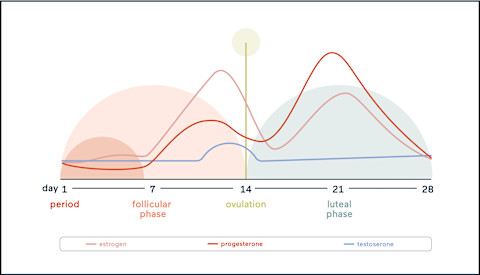Dare to try. Choose to keep trying. Be prepared to fail. Learn your lessons, but keep going. Each time I applied for a job in the BBC World Service newsroom and was rejected, I put the letter in my back pocket, as a daily spur to remind me to make greater effort, to do whatever was necessary to improve my chances next time. To absorb the feedback, to analyze my mistakes and learn. Eventually it became uncomfortable to sit down. But I kept going until I succeeded.
Resilience has been described as the ability to withstand adversity and bounce back from difficult life events. Times are not easy now. How do we develop greater resilience to withstand the challenges that keep being thrown at us? In this interview series, we are talking to mental health experts, authors, resilience experts, coaches, and business leaders who can talk about how we can develop greater resilience to improve our lives.
As a part of this series, I had the pleasure of interviewing Chris Woolf.
Chris Woolf was a broadcast journalist with the BBC World Service for 34 years. He worked in London, Afghanistan, southern Africa, but mostly in the United States, where he became the News Editor of public radio’s main international news show, “The World.” (He was on-air for many years as the show’s “History Guy.”) His 2021 book, “Bumbling Through the Hindu Kush: A Memoir of Fear and Kindness in Afghanistan” documents his personal experience of war and resilience, stuck behind rebel lines on the wrong side of the mountains, in 1991. In addition to writing, Woolf runs a voiceover company he co-founded, The Voice Depot.
https://the-voice-depot.com/, https://chriswoolfbooks.com/, https://linktr.ee/chriswoolfbooks
Thank you so much for joining us! Our readers would love to get to know you a bit better. Can you tell us a bit about your backstory?
I was born and bred in England, and became the first person from my family to go to college (university). Throughout my career I have striven to give back to society for giving me such opportunities. I toyed with the idea of a military career, and even served a hitch as an infantryman in the British equivalent of the National Guard, during the Cold War and the IRA insurgency. I loved it. But after college I switched to a different form of public service, as a journalist with the BBC World Service, bringing truth to the world. Journalism is a hard school: full of knocks, rejections, trauma and threats to life and limb. But it’s also a craft that can bring tremendously rewarding moments (see below).
In 1998, I had the opportunity to collaborate with an American outlet, in Boston. I was supposed to be on loan for just a year. One year became two, and in due course I became a US citizen. In 2018, I helped my wife start our own company, The Voice Depot, providing professional voiceover services to corporate clients. It was a success and in 2020, it became a full-time gig. The flexibility of being my own boss helped me realize another life goal: writing. My #BumblingBook was published in 2021.
Can you share with us the most interesting story from your career? Can you tell us what lessons or ‘take aways’ you learned from that?
That’s a tough one. The most satisfying memory from my 34 years in journalism took place on June 5th 2002. I was instrumental in bringing a D-Day paratrooper back from the dead. He had been reported killed in action, but was actually wounded and captured by the Nazis. As a Jew, he had ripped off his dog-tags. He felt so bad about being taken prisoner, he never contacted any of his former comrades. I tracked them down, and facilitated the introductions. He was welcomed back with open arms, and personally enjoyed a whole new lease on life. It was an astonishing coincidence that this all took place 57 years to the day that they had embarked for Normandy. (You can listen to the discussion I produced on June 6th 2002 between him and his old squad commander, here: https://soundcloud.com/theworld/filthy-13-sergeant-and-private )
What do you think makes your company stand out? Can you share a story?
Integrity. The French poet, Nicolas Boileau, wrote:
“Honour is like an island,
Steep and without shore;
They who once leave,
Can never return.”
This is my mantra. To me it means there are no easy ways out. No weak compromises to be made. No way to avoid moral responsibility or physical risk. Because there’s no way back to honour. Always do the right thing. This has cost me dearly, on occasion. But I have always striven to look back, from my death bed, with a clear conscience.
None of us are able to achieve success without some help along the way. Is there a particular person who you are grateful towards who helped get you to where you are? Can you share a story?
The one single person who most contributed to my success, outside of my parents, was a teacher. Mrs Butler. She was the one who saw my potential. Without her support, encouragement and direction, I would never have applied to go college, let alone Cambridge University, one of the most prestigious in the world. The prevailing ambition at my secondary school had been for a life of manual labour. She changed my world. I became the first person in my family to go to college, and the first from that school.
Ok thank you for all that. Now let’s shift to the main focus of this interview. We would like to explore and flesh out the trait of resilience. How would you define resilience? What do you believe are the characteristics or traits of resilient people?
Resilience is simply the ability to keep going despite the difficulties. As a teenager I read a biography of the WW2 secret agent, Odette Hallowes, and was deeply struck by the mantra instilled in her, that nothing is impossible; some things are just more difficult than others. Resilience is a choice, just like happiness or gratitude. It doesn’t mean keep doing the same thing in the same way, despite repeated failure. It means learning from those defeats and setbacks and applying your new understanding to the next attempt, or simply re-imagining your goals. Thomas Edison claimed to have failed 10,000 times before perfecting the light bulb. George Washington suffered repeated catastrophic defeats in the early years of the American Revolution, but strove hard to adapt and learn each time. Be willing to fail. Be willing to learn. #KeepBumblingThrough.
Courage is often likened to resilience. In your opinion how is courage both similar and different to resilience?
It takes moral courage to be willing to fail, and to take responsibility for it. And more courage to try again. But courage and resilience are not the same. In my experience, courage is what you see when you choose to do something dangerous or risky. But that can be borne from desperation, because the alternative is worse. Some call it courage when I had to distract the guard as part of our escape from the Communist secret police in Afghanistan. Or to keep moving through a minefield after you realize you’re in one. But I didn’t really have a choice. That’s the source of the title of my book, Bumbling Through the Hindu Kush, about my time stuck in Afghanistan — I had to just keep bumbling through. So courage is the ability to take physical risks or moral responsibility. Resilience, on the other hand, is persistence in the face of defeat or adversity.
When you think of resilience, which person comes to mind? Can you explain why you chose that person?
I mentioned Edison and Washington earlier, but in the contemporary world I think the best example of resilience would be Malala Yusufzai, the Pakistani human rights activist. Extremists tried to kill her and despite her horrific injuries, she refuses to give up her mission, advocating for basic rights for women and girls.
In a broader sense, all the women in Afghanistan today who continue to protest against the Taliban must be saluted, too. In time, I’m confident they will win a more just and inclusive country. They know it, too, but must first endure a new era of repression.
Has there ever been a time that someone told you something was impossible, but you did it anyway? Can you share the story with us?
So many times … One story jumps out. I set out to climb Mount Kilimanjaro, once upon a time, the tallest mountain in Africa. I was trying to raise money for charity. At 17,000 feet I was struck down with a severe case of the runs. I’d taken a gamble drinking water from the highest spring on the continent. I was left with a guide while the rest of our party carried on up the last 2,000 feet to the summit. But I refused to turn back. I’d take a few steps, then have to take a break. Re-hydrate. And slowly, slowly, I made my way to the top. I couldn’t let my sponsors down.
Did you have a time in your life where you had one of your greatest setbacks, but you bounced back from it stronger than ever? Can you share that story with us?
I was crushed when my marriage fell apart in 2015. I didn’t see it coming. I didn’t want it. I had no idea what the future held.
But it turned out to be a new Year Zero. I had to figure out everything again from the ground up. I was back at the bottom of Maslow’s pyramid, looking for shelter, stability and security. I found it, through hard work and resilience. My life since has turned out to be the most creative, most productive time in my life. Writing the book has taken me into self-actualization territory. With my new partner, now wife, I dare say the last few years have been among the happiest times of my life.
How have you cultivated resilience throughout your life? Did you have any experiences growing up that have contributed to building your resiliency? Can you share a story?
I was privileged to grow up in a warm, loving, stable family. I was inspired by reading history and biographies, but I wasn’t really tested. I chose to challenge myself. I was afraid of heights, so I elected to do a parachute course in the army. I competed for the battalion endurance marching team, and was selected, earning a medal in an international event. My first real test or lesson in resilience didn’t come until after my father got sick and died while I was still a very young man, just out of university. I resolved to live a good life, as none of us know how much time we have.
Resilience is like a muscle that can be strengthened. In your opinion, what are 5 steps that someone can take to become more resilient? Please share a story or an example for each.
- Dare to try. Choose to keep trying. Be prepared to fail. Learn your lessons, but keep going. Each time I applied for a job in the BBC World Service newsroom and was rejected, I put the letter in my back pocket, as a daily spur to remind me to make greater effort, to do whatever was necessary to improve my chances next time. To absorb the feedback, to analyze my mistakes and learn. Eventually it became uncomfortable to sit down. But I kept going until I succeeded.
- Don’t let the past drag you down. My father was born in a workhouse (like Oliver Twist), but he never let that be an obstacle to his determination to succeed.
- Don’t let the future drag you down. As my father lay dying, he insisted one of us went to the optician to pick up his new glasses. However much time he had left, he wanted to live it the full.
- Learn from others. I defined my own principles through reading. Earlier I mentioned the biography of the WW2 agent, Odette Hallowes, but I was also inspired by the legend of Robert the Bruce and the spider, and the campaigns of Nathanael Greene during the American Revolution.
- Create accountability. Nothing keeps you better motivated than being held to account. Where no accountability exists, I create it. I had no deadline to finish my book about my time in Afghanistan, but I persuaded an Afghan author acquaintance to read the manuscript, and promised to deliver him a copy by a certain date. It was an imaginary deadline and a fictitious obligation. But it kept me on track.
You are a person of great influence. If you could inspire a movement that would bring the most amount of good to the most amount of people, what would that be? You never know what your idea can trigger. 🙂
I’m torn. I have two lessons to share. The first is the importance of kindness to strangers. I wouldn’t be here but for the kindness of strangers in Afghanistan. I have tried to pay back that kindness, by helping strangers, and hopefully to pay it forward. It’s not easy. It takes everything we have to overcome our fear or embarrassment, and to overcome our prejudices and biases. But it can save a life. So we must try.
The second lesson is one that helped inspire me to write the book, and inspired its name: Bumbling Through the Hindu Kush, and that’s to #KeepBumblingThrough. When you find yourself in a situation where you are completely out of your depth, and out of control, just keep going. There really is no choice. We’re all bumbling through to some degree. Remember, no-one is in control. But we can choose to keep going, and to keep trying. To persist.
We are blessed that some very prominent leaders read this column. Is there a person in the world, or in the US with whom you would love to have a private breakfast or lunch with, and why? He or she might just see this, especially if we tag them 🙂
President Jimmy Carter. I’d love to learn first-hand the sources of his compassion, integrity and resilience. As a back-up, I’d choose Larry David, as he appears to feel the same way as me about social commitments.
How can our readers further follow your work online?
I have a blog on my website, ChrisWoolfBooks.com, and can also be found on the main social media outlets by searching for my name or the #BumblingBook.
This was very inspiring. Thank you so much for joining us!








